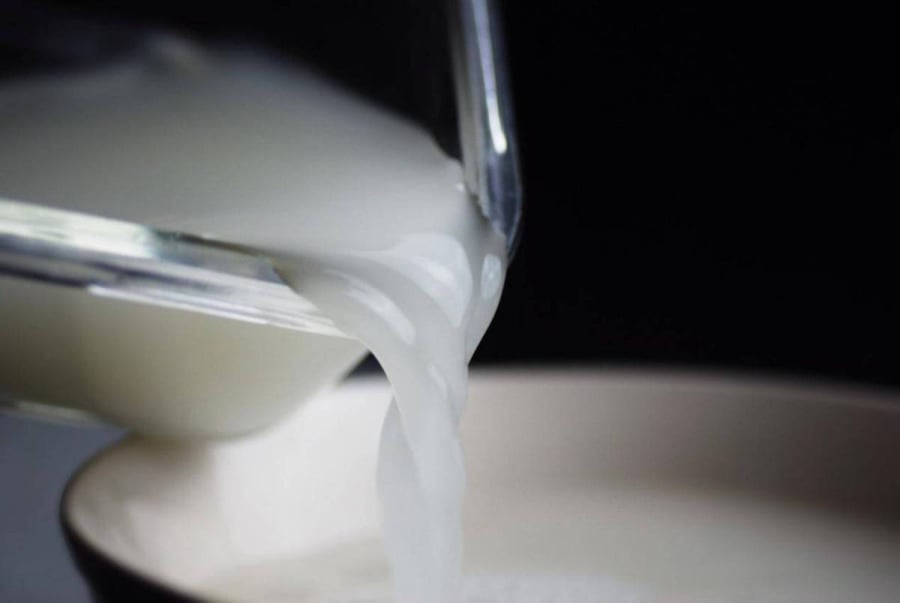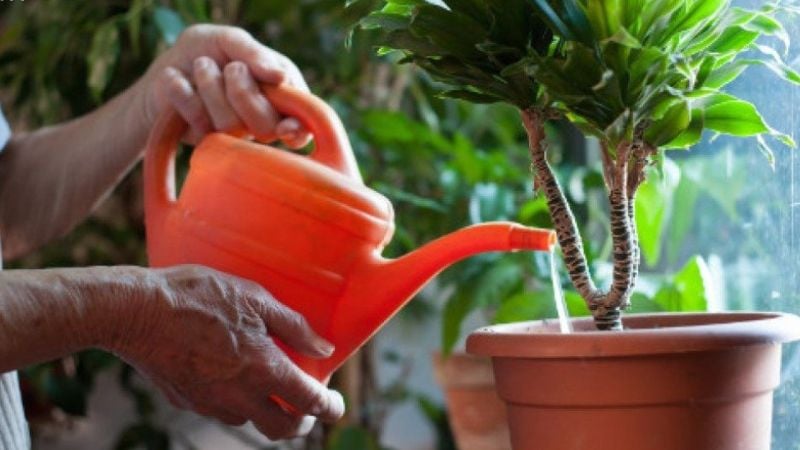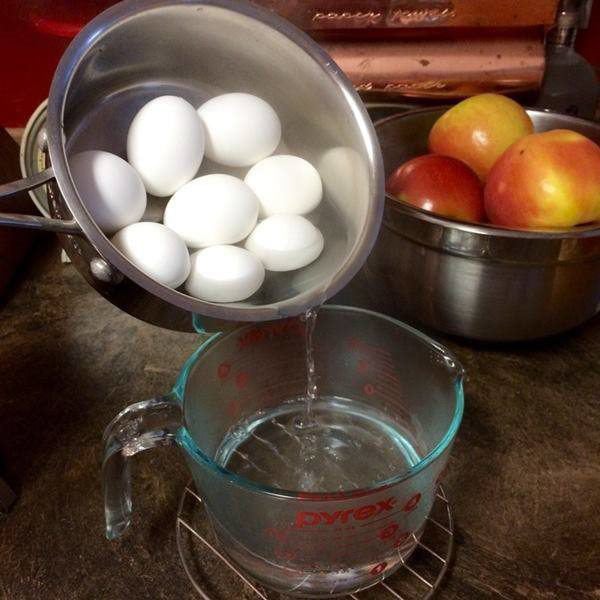Rice Water Left Overnight
Rice water left to ferment overnight becomes a valuable nutrient source for plants due to its abundance of beneficial microorganisms. Daily watering with diluted rice water not only supplements a substantial amount of starch but also provides a multitude of natural nutrients essential for plant growth.
Rice water is especially recommended for vegetables grown for daily consumption. For herbs, rice water can enhance their flavor, making them more appealing and savory. Additionally, rice water helps prevent root rot caused by pathogenic viruses, fostering the healthy development of plants.

Rice water is ideal for vegetables grown for daily meals
Fresh Tea Leaves and Leftover Tea
For generations, our ancestors have skillfully utilized fresh tea leaves and leftover tea in gardening, considering it an effective method to prevent mold-induced diseases in plants. For optimal results, dilute the tea with a ratio of 1:10 before watering the plants and patiently await the positive changes.
Fresh tea is particularly beneficial for indoor ornamental plants and potted plants. However, it is essential to use only fresh tea and avoid watering with tea that has been left overnight or has turned sour, as this may increase alkalinity without benefiting the plants. Careful selection of watering sources contributes to the healthier growth of plants.
Urine
Urine, a byproduct of the human body’s excretory system, contains up to 80% of the protein we excrete in our daily lives. Using urine to water plants can be significantly beneficial as it provides various vitamins, minerals, and trace elements essential for robust plant growth.
If your household has a ready supply of urine, you can fully utilize this resource instead of applying nitrogen fertilizer. However, remember to dilute the urine before watering the plants to avoid harming the root system. When used appropriately, watering with urine can increase plant growth by 10% to 27%. Try this method and witness the difference in your plants’ development!

Urine is a readily available resource for gardening
Vitamin B1 Solution
Solutions containing vitamin B1 offer a fantastic way to boost plants’ immunity. Periodic spraying of vitamin B1 every 15 days throughout the year benefits not only root development but also stimulates the growth of new buds, especially helpful during winter to aid plants in withstanding the cold.
One thing to note is that, unlike some other watering solutions, vitamin B1 should be applied in the absence of sunlight as it is prone to decomposition under sunlight. Hence, the ideal time to water with this solution is early in the morning before sunrise or in the evening after the sun has set.
Egg Boiling Water
Water used to boil chicken or duck eggs contains up to 95% calcium carbonate, a highly beneficial nutrient for plant growth. Using this water will make your plants bloom more vibrantly and for a longer duration, especially suitable for ornamental plants such as roses, orchids, hydrangeas, or marigolds. Regular application of egg boiling water also helps prevent stunted growth and malnutrition in plants.
A simple way to care for your plants is to recycle cooled egg boiling water, directly pouring it into the pots without further dilution. This method is gaining popularity among plant enthusiasts as it saves costs and reduces the effort required for plant care.

Egg boiling water contains beneficial calcium carbonate
Leftover Beer and Alcohol
While beer and alcohol may not be healthy choices for humans, they offer surprising benefits for plants. Using these beverages can significantly promote plant growth by eliminating and controlling harmful insects such as aphids, centipedes, and snails. Additionally, they help repel bees and carpenter bees, ensuring the healthy development of plants.
Beer and alcohol are also effective in deterring rodents like mice and cockroaches, the potential enemies of plants. To apply this method, dilute 3 to 4 spoons of beer with about 2 liters of water. Then, use a spray bottle or modern watering device to water the plants. You will surely notice a difference in your plants’ growth after employing this unique care technique.
Salt Water
Salt is an essential mineral for plant growth, especially for fruit-bearing trees. Using saltwater to irrigate plants judiciously can enhance flowering and improve the sweetness of the fruits. However, it is crucial to adjust the salt concentration in the watering solution carefully; excess salt can have detrimental effects on plant growth.
When adopting the method of watering plants with saltwater, refer to additional guidelines to ensure safety. It is important to always follow basic watering principles. Water your plants sufficiently, adjusting the frequency according to the climate and water requirements of each plant type. This will enable plants to absorb the maximum amount of nutrients, leading to healthier growth and higher-quality produce.
The Ultimate Beauty Elixir: A Simple Secret to Radiant Skin
Rice water has been a well-kept beauty secret for centuries, with its skin-transforming properties. It is a powerful ingredient that can enhance your complexion, brighten and restore your skin to its youthful radiance. A true skin savior, rice water is the essential step to achieving a glowing and healthy canvas.






































